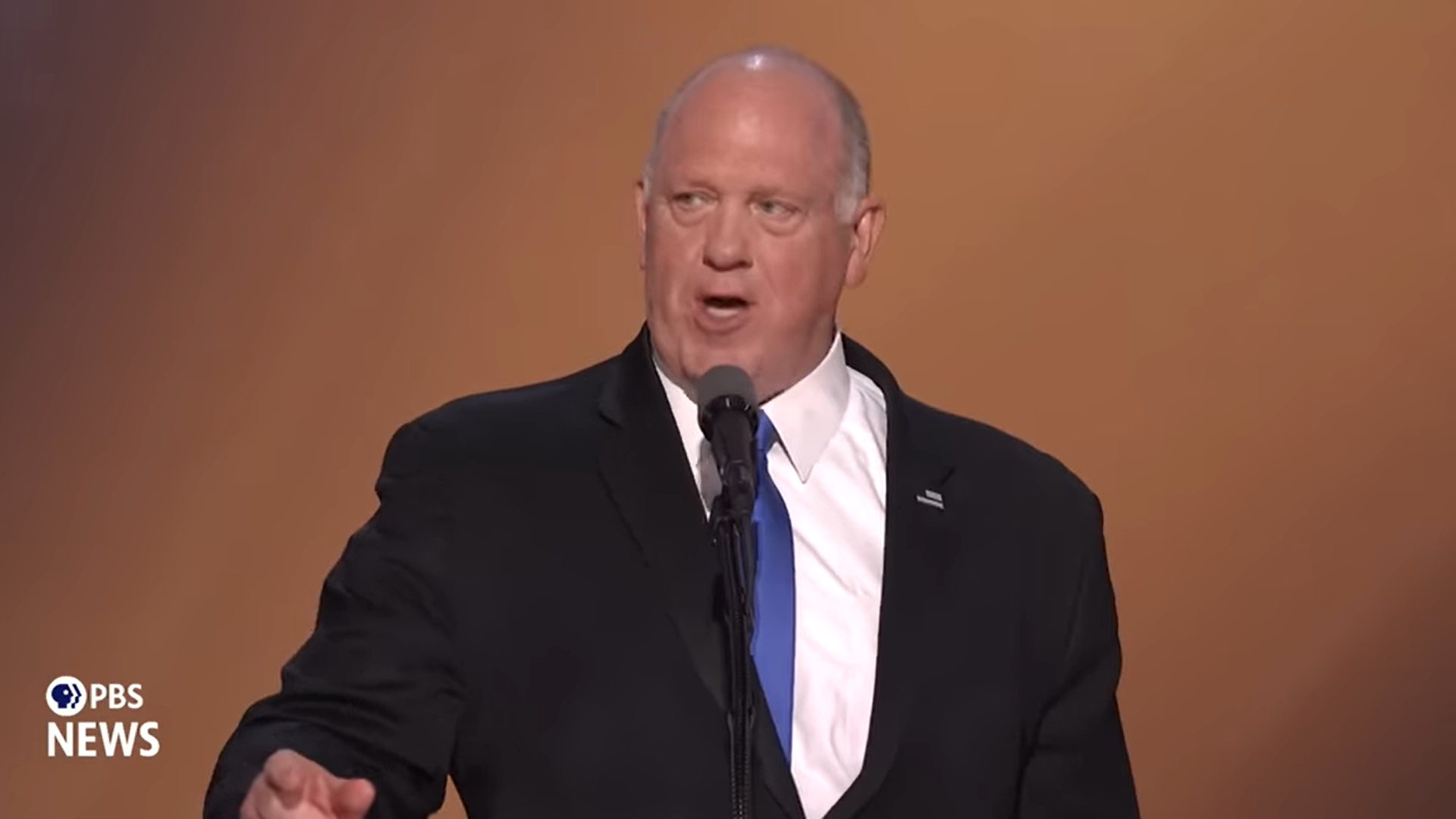The U.S. Supreme Court on Monday ruled that the Trump administration can resume deporting illegal immigrants to countries where they have no ties without “meaningful” advance notice or an interview to determine if they face harm there.
Reuters reported that the decision lifts an order from U.S. District Judge Brian Murphy, who had issued a nationwide injunction to slow down deportations to third countries by placing various restrictions on the process.
The leftist judge in Boston also threatened the Trump administration with contempt of court in May after officials tried to fly some deportees to unstable South Sudan without advance notice that they were heading there.
We warned you this would happen.
Radical liberal district court judges massively overreached and endangered American law enforcement officers to protect illegal alien murderers, rapists, and pedophiles.
This HAS to stop.
(From the White House Press Briefing on May 22, 2025)… https://t.co/cQY2NssycJ pic.twitter.com/9azmAxnxc8— Karoline Leavitt (@PressSec) June 5, 2025
Lower court judges have blocked the Trump administration on nearly every front as it tries to speed up deportations, especially of criminal illegal immigrants who cannot return to their home country.
In some cases, countries resist or refuse to take back their citizens when they are ordered deported from the U.S. In other cases, illegal immigrants have immigration orders that prohibit them from being sent back home.
“Fire up the deportation planes,” Tricia McLaughlin, a Department of Homeland Security spokeswoman, said in a statement celebrating the ruling.
The highly publicized case of Salvadoran national Kilmar Abrego Garcia brought the issue to a head after Trump officials deported him back to El Salvador in March. An immigration judged had ordered he could be deported to a third country — but not his own — because he claimed a fear of retaliation by rival gangs if he went back to El Salvador.
“The Supreme Court’s stay of a left-wing district judge’s injunction reaffirms the president’s authority to remove criminal illegal aliens from our country and Make America Safe Again,” White House spokesperson Abigail Jackson said after Monday’s decision.
Monday’s 6-3 ruling by the high court granted the Trump administration’s request to stay a lower court injunction blocking them from deporting individuals to third countries without prior notice, Fox News Digital reported.
The high court’s majority offered no explanation for its ruling. Liberal justices Sonia Sotomayor, Elena Kagan and Ketanji Brown Jackson dissented. Sotomayor called the ruling an “abuse” of the court’s power that amounted to “rewarding lawlessness” on the part of the administration, Politico reported.
Fox News Digital reported that Murphy stressed his order does not bar Trump “from executing removal orders to third countries.” Instead, “it simply requires” the government “to comply with the law when carrying” out such removals under the U.S. Constitution.
Murphy’s order specifies that illegal immigrants set for deportation to so-called “third countries,” or countries where they have no ties, get a “meaningful opportunity” to tell U.S. officials their concerns and raise objections about being deported there, Reuters reported.
In some cases, the government arranges deportation to a country not “explicitly” named in an immigration removal order — known as a third-country deportation. Murphy presided over a class-action lawsuit from immigrants who are challenging deportations to third countries, including South Sudan, El Salvador, Costa Rica, Guatemala and others, Fox News Digital reported.
Murphy ruled the policy of “executing third-country removals without providing notice and a meaningful opportunity to present fear-based claims” likely violates the U.S. Constitution’s due process protections.
On May 21, Murphy intervened when Trump officials tried to fly a group of immigrants to South Sudan. The legal feud began after immigration advocates and attorneys say the men were put on a deportation flight to violence-plagued South Sudan without adequate notice or due process.
Murphy held an emergency hearing and ruled the flight “unquestionably” violated a court order and that U.S. officials risked being held in contempt of court for violating a preliminary injunction he issued in April.
His ruling prompted the U.S. government to keep the migrants at a military base in Djibouti. He said the Trump administration failed to follow the additional steps laid out in his April 18 injunction.
Murphy has ordered the government give deportees adequate notice of their final destination and a chance to challenge their removal. His ordered includes “reasonable fear” interviews to screen them for any concerns about being harmed in a third country.
Reuters reported Monday’s Supreme Court decision applied to Murphy’s April 18 injunction. Within hours, lawyers for the men being held in Djibouti filed a motion with Murphy asking him to continue to block their deportation to South Sudan.
Murphy said Monday’s ruling did not affect his May 21 decision concerning the migrants on the flight to South Sudan. That order, Murphy said, “remains in full force and effect.”
Murphy also required the Trump administration to bring a Guatemalan man back to the U.S. from that country after the judge concluded the man was deported to Mexico in violation of the court’s order.
The administration asked the Supreme Court to intervene after the Boston-based 1st U.S. Circuit Court of Appeals on May 16 declined to put Murphy’s decision on hold, Reuters reported.
U.S. Solicitor General D. John Sauer argued that Judge Murphy’s ruling had blocked them from removing “some of the worst of the worst illegal aliens,” according to Fox News Digital.
Justice Sotomayor slammed her fellow justices for the reversal.
“Rather than allowing our lower court colleagues to manage this high-stakes litigation with the care and attention it plainly requires, this Court now intervenes to grant the Government emergency relief from an order it has repeatedly defied,” Justice Sotomayor said, as reported by Fox.
Trump officials told the Supreme Court that its third-country policy already complied with due process rights. They argue it is necessary for removing criminal illegal immigrants because their native countries are often unwilling to take them back.
The administration said that the deportees on the South Sudan flight had committed “heinous crimes” in the United States, including murder, arson and armed robbery.
Reuters previously reported that U.S. officials had been considering sending migrants to Libya, another politically unstable country.
Despite the ruling, Murphy and other judges could continue to block third-country deportations in individual cases, Politico reported. It could also trigger individual lawsuits from immigrants facing deportation, including more sweeping claims of “credible fear.”
Essentially, they could file suit to prevent deportation to countries they have no connections to but are known for violence, war and human rights violations. Under U.S. law and the United Nations Convention Against Torture, people cannot be deported to countries if they can show they are likely to face torture there.
This latest Supreme Court ruling is a reversal of previous decisions that did not side with the Trump administration. U.S. judges have repeatedly blocked the administration’s deportation efforts, ruling that the government has violated due process by failing to notify immigrants of their imminent removals.



